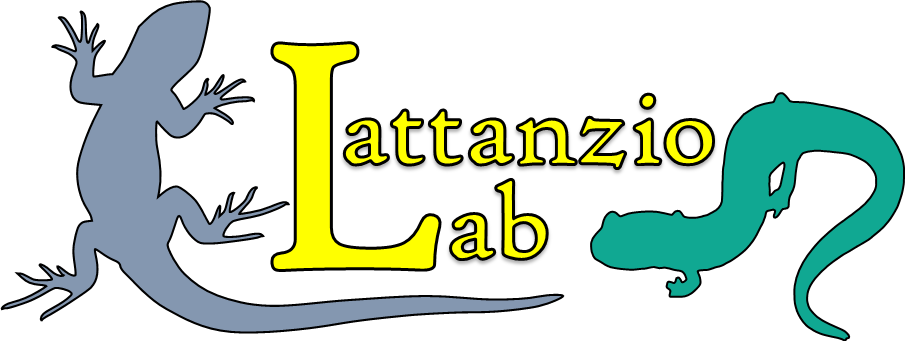
Courses
Current and recent CNU courses by Dr. Lattanzio

Current and recent CNU courses by Dr. Lattanzio
Courses listed in order of course number. BIOL courses are undergraduate-level, ENVS courses are graduate-level.
This introductory series course for biology majors covers key concepts in evolutionary biology and ecology, as well as a broad survey of the diversity of life on Earth.
This introductory series lab accompanies BIOL212 and emphasizes tree thinking, the organization of biodiversity, and a survey of representative members of major groups of prokaryotes and eukarotes. Course concludes with field labs designed to introduce ecological methods/practice.
Spring semester, odd years
This course and lab combination emphasizes the study of amphibians and reptiles, with a strong focus on their evolution, physiology, ecology, systematics, and life history. Emphasis in lab is placed on species identification and research experience via weekly field and lab-based projects, and participation in ongoing local research and outreach on snakes, lizards, and salamanders.
Fall semester, annually
A graduate-level course designed to develop students' skills in experimental design, sampling, and statistical analysis in Organismal and Environmental Biology. Students will gain experience 1) applying statistical tests to real biological datasets in a widely-used software program R, 2) identifying appropriate test(s) for a given set of data, and 3) evaluating the scientific merit of published literature.
Summer Term I, annually
A graduate-level asynchronous online course focused on the interactions among species that contribute to the structure and function of ecological communities and patterns of species coexistence over space and time. Emphasis is placed on critical interpretation of recent and historical literature and schools of thought, experimental and mathematical modeling of key phenomena, and development and completion of an independent project (literature review or experimental assessment of key hypotheses in the field using community science data).
Fall semester, odd years
A graduate seminar designed to help students develop and refine science communication skills for diverse audiences. Topics include writing for academic and general audiences, graphical design, presenting data, and public outreach.
Fall semester, annually
This graduate level lecture course is aimed at providing a hands-on approach to engage students in programming, small-form electronics, and the development of their own low-cost environmental sensors and data loggers for research use, and then how to share those data and methods in a reproducible manner. Special attention is paid to underlying concepts and theory addressable via this approach and providing students with the skills necessary to develop their own projects suitable for thesis (or other) research implementation. The course will consist of a mixture of traditional lecture on major concepts, student-led discussions, programming exercises, electronics assembly and implementation, periodic experiments, data analysis, and a final project. Skills mastered from this course should be applicable to any scientific field.
Courses listed in order of course number. Courses in this list are either no longer taught or purposefully designed to match content and pedagogy among different instructors. Course design, content, and delivery schedule is dictated by the department (or college). See my CV for courses taught at Ohio University.
BIOL 391: Junior Writing Intensive Seminar (department-designed)
BIOL 495 + BIOL 495 Lab: Community Ecology (no longer taught)